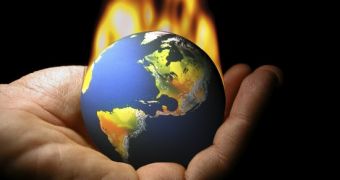The World Bank seems determined to ruin an otherwise perfect week. Not to beat about the bush, the organization has released a new report saying that, over the past decade, the costs of climate-related damage have amounted to a whopping $200 billion (€148 billion) yearly.
Just to put things into perspective, it must be said that, back in the 1980s, these costs averaged merely $50 billion (€37 billion) yearly.
According to Inhabitat, the World Bank has found that developing countries are significantly affected by ongoing changes in our planet's weather patterns.
Thus, it appears that, within said timeframe, the economic impact of climate-related damage was about ten times greater in emerging economies than it was in countries whose economy is well balanced.
Needless to say, poor countries such as the Philippines are the ones most vulnerable to the effects of climate change and global warming.
According to the organization, these nations are likely to be hit harder by climate-related disasters because, as they develop, human communities are set up in areas that are fairly vulnerable to flooding, drought and the like.
“The more vulnerable and less prepared our nations, communities and households are, the more we suffer. If we live in coastal or water scarce areas, on steep slopes, the more we are at risk. If our house is made of sturdy materials, the less we are likely to be affected. However, if we are poor or we live in a poor country, the more likely we are to lose our lives,” the World Bank report reads.
Furthermore, “As the global climate continues to change, developing countries face mounting losses from severe floods, droughts and storms. By 2030, there could be 325 million people trapped in poverty and vulnerable to weather-related events in sub-Saharan Africa and South Asia. Large coastal cities, many of them in growing, middle-income nations, could face combined annual losses of US$1 trillion from such events by mid-century.”
In light of these findings, the World Bank urges that the world eliminate extreme poverty and strives to achieve shared prosperity by 2030 at the latest.

 14 DAY TRIAL //
14 DAY TRIAL //